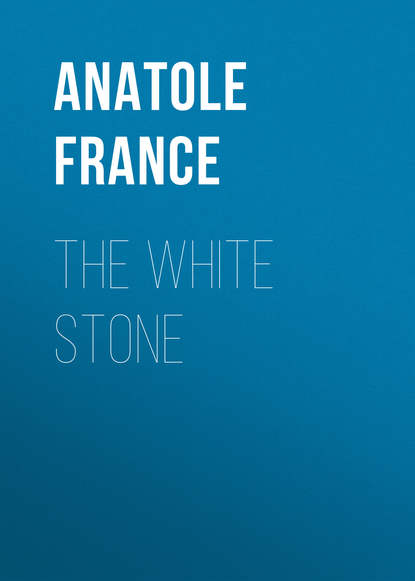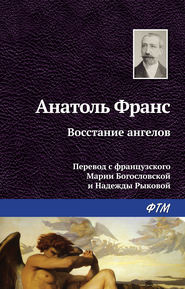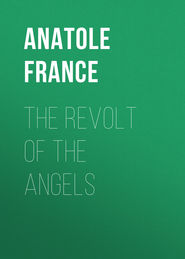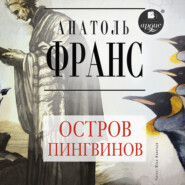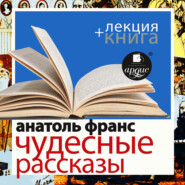По всем вопросам обращайтесь на: info@litportal.ru
(©) 2003-2024.
✖
The White Stone
Настройки чтения
Размер шрифта
Высота строк
Поля
“‘She reproached me for taking liberties with her, exclaiming:
“‘Your ways are those of a savage.’
“‘I do not find acceptance with you?’
“‘I do not say so.’
“Chéron, Chéron, would it cost you any great effort to…’
“We sat down together on a bench over which an elm cast its shade. I took her hand, and carried it to my lips … of a sudden, I no longer felt, no longer saw anything, and I found myself lying in bed at home. I rubbed my eyes, smarting with the morning light, and I saw my valet who, standing before me with a stupid look, was saying to me:
“It is nine o’clock, sir. You told me to wake you at nine o’clock, sir. I have come to tell you, sir, that it is nine o’clock?”
VI
Hippolyte Dufresne was warmly congratulated by his friends on his finishing the reading of his story.
Nicole Langelier, applying to him the words of Critias to Triephon, said:
“You seem to have dreamt on the white stone, in the midst of the people of dreams, since you dreamt so long a dream in the course of so short a night.”
“It is not likely,” remarked Joséphin Leclerc, “that the future will be such as you have seen it. I do not wish for the coming of socialism, but I dread it not. Collectivism at the helm would be quite another thing than is imagined. Who was it who said, carrying back his thoughts to the time of Constantine and of the Church’s early triumphs: ‘Christianity is triumphant, but its triumph is subject to the conditions imposed by life on all political and religious parties. All of them, whatever they may be, undergo so complete a transformation in the struggle that after victory there remains of themselves but the name and a few symbols of the last idea’?”
“Must we then give up the idea of knowing the future?” asked M. Goubin.
But Giacomo Boni, who when delving down into a few feet of soil had descended from the present period to the stone age, remarked:
“Upon the whole, humanity changes little. What has been shall be.”
“No doubt,” replied Jean Boilly, “man, or that which we call man, changes little. We belong to a definite species. The evolution of the species is of necessity included in the definition of the species. It is impossible to conceive humanity subsequent to its transformation. A transformed species is a lost species. But what reason is there for us to believe that man is the end of the evolution of life upon the earth? Why suppose that his birth has exhausted the creative forces of nature, and that the universal mother of the flora and fauna should, after having shaped him, become for ever barren. A natural philosopher, who does not stand in fear of his own ideas, H. G. Wells, has said: ‘Man is not final.’ No indeed, man is neither the beginning nor the end of terrestrial life. Long before him, all over the globe, animated forces were multiplying in the depths of the sea, in the mud of the strand, in the forests, lakes, prairies, and tree-topped mountains. After him, new forms will go on taking shape. A future race, born perhaps of our own, but having perchance no bond of origin with us, will succeed us in the empire of the planet. These new spirits of the earth will ignore or despise us. The monuments of our arts, should they discover vestiges of them, will have no meaning for them. Rulers of the future, whose mind we can no more divine than the palæopithekos of the Siwalik Mountains was able to forecast the trains of thought of Aristotle, Newton, and Poincaré.”
THE END
notes
1
Paul Adam, journalist and playwright; contributor to the Revue de Paris and the Nouvelle Revue.
2
Maurice Spronck, journalist and barrister; contributor to the Journal des Débats, the Revue des Deux Mondes, the Revue bleue, and the Revue hebdomadaire.
3
Camille Faust, dit Camille Mauclair, art critic and lecturer; author of works on Greuze, Fragonard, Schumann, Rodin, and of De Watteau à Whistler.
4
M. Georges Bourdon, journalist, on the staff of Le Figaro.
5
M. Edmond Théry, journalist, on the staff of Le Figaro. Has been entrusted by the French Government with several politico-economic missions; author of several works in this connection.
6
Dr. Charles Richet, a noted physician, who has written plays, and is the author of several works on physiology and sociology.
7
M. Jean Finot, editor of La Revue, and contributor to several French and European publications.
8
Abbrustolatoio– apparatus attached to the candle; it has two rings through which the cigar is placed, and left to burn awhile.
“‘Your ways are those of a savage.’
“‘I do not find acceptance with you?’
“‘I do not say so.’
“Chéron, Chéron, would it cost you any great effort to…’
“We sat down together on a bench over which an elm cast its shade. I took her hand, and carried it to my lips … of a sudden, I no longer felt, no longer saw anything, and I found myself lying in bed at home. I rubbed my eyes, smarting with the morning light, and I saw my valet who, standing before me with a stupid look, was saying to me:
“It is nine o’clock, sir. You told me to wake you at nine o’clock, sir. I have come to tell you, sir, that it is nine o’clock?”
VI
Hippolyte Dufresne was warmly congratulated by his friends on his finishing the reading of his story.
Nicole Langelier, applying to him the words of Critias to Triephon, said:
“You seem to have dreamt on the white stone, in the midst of the people of dreams, since you dreamt so long a dream in the course of so short a night.”
“It is not likely,” remarked Joséphin Leclerc, “that the future will be such as you have seen it. I do not wish for the coming of socialism, but I dread it not. Collectivism at the helm would be quite another thing than is imagined. Who was it who said, carrying back his thoughts to the time of Constantine and of the Church’s early triumphs: ‘Christianity is triumphant, but its triumph is subject to the conditions imposed by life on all political and religious parties. All of them, whatever they may be, undergo so complete a transformation in the struggle that after victory there remains of themselves but the name and a few symbols of the last idea’?”
“Must we then give up the idea of knowing the future?” asked M. Goubin.
But Giacomo Boni, who when delving down into a few feet of soil had descended from the present period to the stone age, remarked:
“Upon the whole, humanity changes little. What has been shall be.”
“No doubt,” replied Jean Boilly, “man, or that which we call man, changes little. We belong to a definite species. The evolution of the species is of necessity included in the definition of the species. It is impossible to conceive humanity subsequent to its transformation. A transformed species is a lost species. But what reason is there for us to believe that man is the end of the evolution of life upon the earth? Why suppose that his birth has exhausted the creative forces of nature, and that the universal mother of the flora and fauna should, after having shaped him, become for ever barren. A natural philosopher, who does not stand in fear of his own ideas, H. G. Wells, has said: ‘Man is not final.’ No indeed, man is neither the beginning nor the end of terrestrial life. Long before him, all over the globe, animated forces were multiplying in the depths of the sea, in the mud of the strand, in the forests, lakes, prairies, and tree-topped mountains. After him, new forms will go on taking shape. A future race, born perhaps of our own, but having perchance no bond of origin with us, will succeed us in the empire of the planet. These new spirits of the earth will ignore or despise us. The monuments of our arts, should they discover vestiges of them, will have no meaning for them. Rulers of the future, whose mind we can no more divine than the palæopithekos of the Siwalik Mountains was able to forecast the trains of thought of Aristotle, Newton, and Poincaré.”
THE END
notes
1
Paul Adam, journalist and playwright; contributor to the Revue de Paris and the Nouvelle Revue.
2
Maurice Spronck, journalist and barrister; contributor to the Journal des Débats, the Revue des Deux Mondes, the Revue bleue, and the Revue hebdomadaire.
3
Camille Faust, dit Camille Mauclair, art critic and lecturer; author of works on Greuze, Fragonard, Schumann, Rodin, and of De Watteau à Whistler.
4
M. Georges Bourdon, journalist, on the staff of Le Figaro.
5
M. Edmond Théry, journalist, on the staff of Le Figaro. Has been entrusted by the French Government with several politico-economic missions; author of several works in this connection.
6
Dr. Charles Richet, a noted physician, who has written plays, and is the author of several works on physiology and sociology.
7
M. Jean Finot, editor of La Revue, and contributor to several French and European publications.
8
Abbrustolatoio– apparatus attached to the candle; it has two rings through which the cigar is placed, and left to burn awhile.





